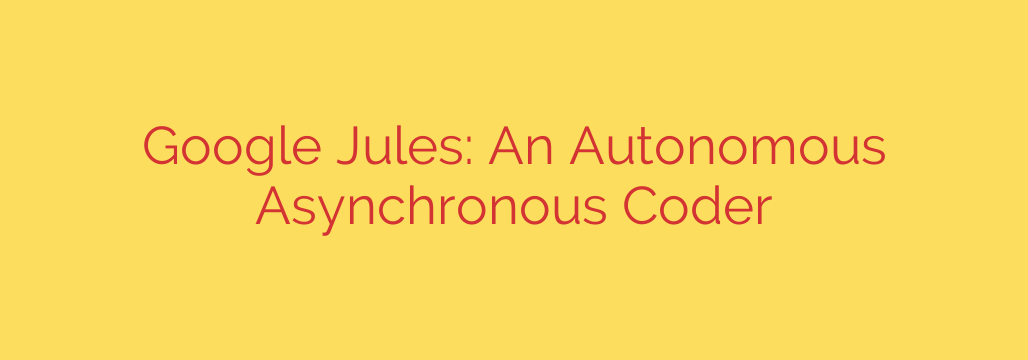
Exploring the frontiers of software development reveals exciting progress in autonomous systems. A notable internal project at Google, often referred to as Jules, represents a significant step towards creating an autonomous, asynchronous coder.
This advanced system is designed to operate with minimal human intervention, tackling coding tasks from specification to implementation. Unlike traditional automated tools that require explicit instructions for every step, Jules is envisioned to understand higher-level objectives and translate them into functional code autonomously. Its asynchronous nature means it can work independently in the background, potentially handling multiple tasks concurrently or iterating on complex problems over extended periods without tying up human resources.
The core idea behind such a system is to revolutionize how software is built. By automating routine or even complex coding efforts, developers could be freed up to focus on more creative, architectural, or strategic challenges. Imagine a system that can generate code, fix bugs, or even implement features based on a description, learning and adapting as it goes. This could dramatically accelerate development cycles and improve efficiency.
While still an evolving concept, the potential implications are vast. Systems like Jules highlight the increasing role of artificial intelligence in augmenting and potentially transforming the software engineering process. It underscores a future where AI doesn’t just assist developers but can take on significant coding responsibilities itself, promising unprecedented levels of productivity and innovation in the tech industry.
Source: https://itnext.io/google-jules-an-autonomous-and-asynchronous-coding-agent-2bbd5daa0436?source=rss—-5b301f10ddcd—4








